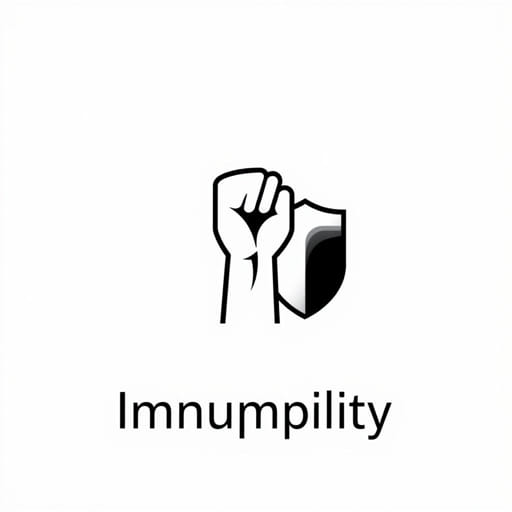Impunity is a term used in English to describe a situation where individuals or groups are able to commit offenses or wrongful acts without facing any consequences or punishment. This concept often arises in discussions about justice, human rights, and accountability. Impunity can be seen in cases where laws exist, but enforcement is weak or biased, allowing the guilty to walk free. It is a troubling issue that undermines the rule of law and damages trust in institutions. Understanding the meaning of impunity and how it affects societies is essential for promoting fairness, transparency, and the protection of rights.
Definition of Impunity
In English, the word ‘impunity’ comes from the Latin termimpunitas, which combines ‘in-‘ meaning ‘not’ and ‘poena’ meaning ‘punishment.’ Therefore, impunity literally means ‘without punishment.’ It refers to exemption or freedom from the consequences of harmful actions, especially those that break the law or violate ethical standards.
Common Usage
Impunity is commonly used in legal, political, and social contexts. It often refers to powerful individuals or groups who commit crimes or abuses and are not held accountable due to corruption, political protection, or institutional failure. Examples include war crimes, police brutality, corporate negligence, and political corruption that go unpunished.
Examples of Sentences Using ‘Impunity’
- The dictator ruled with impunity, ignoring international criticism.
- Journalists were attacked with impunity, and no arrests were made.
- Corrupt officials continue to steal public funds with impunity.
Types of Impunity
Impunity can manifest in several forms, depending on the context and the actors involved. Below are some common types:
Legal Impunity
This occurs when the judicial system fails to prosecute crimes. This can be due to lack of evidence, poor investigation, or political interference. When the courts do not function properly, criminals remain free despite breaking the law.
Political Impunity
Political impunity involves government officials who avoid accountability for misconduct, such as abuse of power, fraud, or human rights violations. These individuals may use their influence to manipulate legal processes or suppress evidence.
Social or Cultural Impunity
In some societies, cultural norms or social hierarchies may protect certain individuals or groups from being punished. For example, domestic violence might go unreported and unpunished due to stigma or family pressure.
Consequences of Impunity
Allowing individuals or groups to act with impunity has serious consequences for society as a whole. It weakens democratic values, encourages lawlessness, and creates a culture of fear and inequality.
- Erosion of Trust: Citizens lose faith in the justice system and government institutions.
- Increased Crime: When offenders are not punished, it sends a message that crime pays.
- Victim Silencing: Survivors of injustice may be discouraged from speaking out.
- Obstruction of Progress: Impunity can hinder development and human rights protection.
Impact on Human Rights
Impunity is one of the major obstacles to the protection of human rights. In regions where impunity is widespread, violations such as torture, illegal detention, and extrajudicial killings often occur without consequence. This not only harms individuals but also prevents healing and reconciliation in post-conflict societies.
Global Efforts to Address Impunity
Many international organizations and legal bodies are working to combat impunity, especially in cases involving crimes against humanity, genocide, and corruption. These efforts aim to strengthen accountability and support victims in their quest for justice.
International Criminal Court (ICC)
The ICC prosecutes individuals accused of serious crimes when national courts are unwilling or unable to do so. It sends a powerful message that nobody is above the law, not even heads of state.
United Nations Initiatives
The UN has various programs and special rapporteurs focused on promoting accountability and ending impunity. These initiatives include investigating human rights violations and supporting legal reforms in affected countries.
Role of Civil Society
Non-governmental organizations (NGOs), journalists, and human rights defenders play a vital role in exposing impunity and demanding justice. They often collect evidence, support victims, and raise public awareness to pressure authorities into taking action.
Fighting Impunity Through Legal Reform
One of the key ways to reduce impunity is through legal reform. This includes creating stronger laws, ensuring judicial independence, and increasing transparency in law enforcement and government.
Key Measures to Reduce Impunity
- Establishing independent investigation agencies
- Protecting whistleblowers and witnesses
- Training law enforcement in human rights and ethics
- Ensuring free and fair media to hold power accountable
Legal education and awareness campaigns also help the public understand their rights and the importance of the rule of law.
Impunity in Everyday Life
While impunity is often discussed at a national or global level, it can also exist in everyday life. For example, when a person repeatedly breaks traffic laws without facing fines, or when a manager abuses power without consequences, these are forms of impunity on a smaller scale.
How Citizens Can Respond
Ordinary people can help fight impunity by reporting violations, participating in civic activities, and voting for leaders who prioritize justice and transparency. Community support for victims and ethical behavior in daily life also contribute to a culture where impunity is not tolerated.
Impunity in English refers to the absence of punishment or accountability for wrongdoing. It can take many forms and affects various levels of society, from local communities to international politics. Combating impunity is essential for building trust in institutions, protecting human rights, and ensuring justice for all. Through legal reform, public engagement, and international cooperation, societies can move toward a future where accountability is the norm, not the exception. Understanding the meaning and implications of impunity is the first step in creating a fair and just world where no one is above the law.
